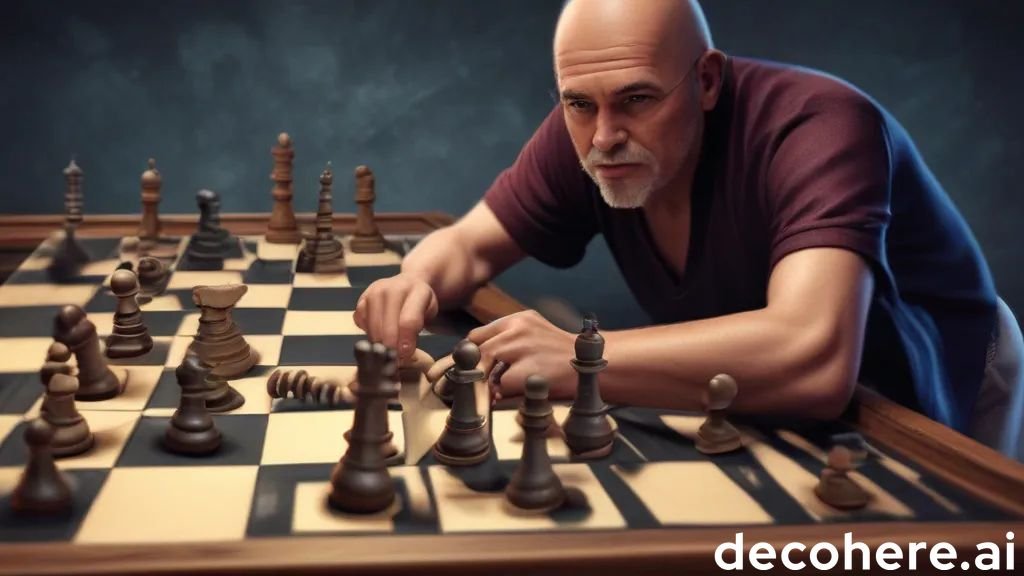How to be a Chess Grandmaster

The world championship title is the highest accolade a player may achieve, but the grandmaster title is the highest one. There are more than 600 million chess players in the globe, but there are fewer than 2000 grandmasters overall. This figure demonstrates how difficult it is to become a grandmaster.
The World Chess Federation, or FIDE (Fédération Internationale des Échecs), is the organization in charge of bestowing the title of grandmaster on chess players.
Chess players can get many titles from FIDE, with the grandmaster title being the highest. A player often has the title for life, and it can only be removed under specific conditions, such as cheating. The FIDE master title and the international master title are further titles.

Begin to Play at an Early Age
Youngsters who begin playing chess at a young age are more likely than adults to be proficient players. This is due to the fact that young children are capable of assimilating information. Plus, learning chess takes years, just like learning other disciplines like music or sketching.
A young youngster who begins playing will therefore have an advantage over older people.
Furthermore, young children can pick up on the tactics, techniques, and other essential ideas needed to excel at chess between the ages of five and eight.
Most grandmasters began playing the game at an early age, and as their skill level increased, so did their knowledge of it.
Set Aside Time to Learn Chess
Like any art, chess demands study. One of the simplest ways to become a grandmaster at chess is via study.
The fact that so few people dedicate themselves to studying chess is one of the reasons there aren’t many grandmasters in the world. Usually, they find it uninteresting and make up reasons like how difficult it is to become a grandmaster of chess.
It is a fact that hard work is necessary to become a grandmaster. Studying and practicing chess requires a great deal of dedication and hard work. But if a player puts in the effort and studies hard, they can become extremely excellent chess players and eventually become grandmasters, which is a highly sought-after title.
Reading can be used to study chess.
Construct a Robust Opening Repertoire
A chess game begins with the opening. Typically, it begins with the player’s first move with the white pieces and continues until casting takes place.
A player must have secured a strong opening position in order to play the middlegame and endgame effectively. If the opening is not played appropriately, you will struggle greatly in the middle and ultimately lose the game.
Developing a strong opening repertoire is the only way to guarantee that you play the opening correctly. A chess player’s collection of opening moves that they employ in their games is known as their opening repertory. There are many different types of chess openings. Thus, it is imperative that you possess two or more
Boost Your Strategic and Tactical Ability
A combat is contested on a board with 64 squares in the game of chess. Understanding tactics and strategy is a key component in determining whether you win or lose in a chess game.
Despite their apparent similarities, tactics and strategy are not the same. A move or series of moves that produce a check, or in certain situations, a checkmate, or the acquisition of material (i.e., gaining a material advantage) can be referred to as tactics.
Conversely, strategy is the overarching plan that determines how a chess game will be played. This implies that a strategy is a long-term plan, whereas tactics are short-term plans.
Usually, tactics come about as a result of watching an opponent make a sequence of movements that you can exploit.
A player who aspires to be a grandmaster needs to have both characteristics. However, you must first be able to utilize the concepts of strategy and tactics in your games.
Here are some actions you can take to sharpen your tactical and strategic abilities:
Seek out common tactical patterns such as skewers, forks, and back-rank checkmates.
Learn the fundamentals of positional play in the middlegame.
Look through the Grandmaster games.
When playing, take note of every piece on the board and constantly search for sacrifices that could result in checkmate or a sizable material advantage.
Every day, solve chess tactic puzzles.
Boost Your Calculation Abilities
Chess is a tactical game in which strategic movements are used to win. As a result, in chess, each move must have a reason and an objective.
In a game of chess, a player must use calculating skills from the opening until the endgame. Defensive strategies, winning maneuvers, mating assaults, and tactics are all accomplished by calculating. In chess, calculation is the process of analyzing and projecting the result of a specific move or sequence of moves.
Studying tactical chess positions can help you become more proficient at calculating in chess. Your ability to calculate chess positions will improve if you play through at least three tactical positions every day.
Improve Your Performance in the Final Round
The opening, middle game, and endgame are the three phases of a chess game. The last phase of a chess game is called the endgame.
A single error in the endgame can determine whether a player wins or loses the game because there are typically very few pieces on the board and every move counts. Understanding the endgame is essential to becoming a grandmaster.
By studying chess literature on the endgame and solving endgame puzzles, you can get better at the endgame.
“You must study the endgame before everything else in order to improve your game, because whereas the endings can be studied and mastered by themselves, the middle game and the opening must be studied in relation to the endgame,” former world champion Jose Raul Capablanca famously said.
Possess a Combative Attitude
Nobody ever gave up to become a professional chess player. Chess is a mental game in and of itself. You need to be a fighter who never gives up if you want to become a grandmaster.
Along the way, you’ll encounter a lot of difficulties, lose a lot of games, and occasionally even find yourself in a winning position just to lose because of a careless mistake. But you need to have an indomitable spirit and a fighting mentality to become a grandmaster.
“You may learn much more from a game you lose than from a game you win,” legendary Cuban chess player Jose Raul Capablanca famously remarked. It will take you hundreds of games to improve as a player.
Consequently, you shouldn’t give up playing chess.
Examine Your Games
The majority of novice chess players don’t analyze their games. Examining a game you have already played to search for errors, inconsistencies, or mistakes is known as “analyzing your games.”
To get better and play better chess, every grandmaster studies their own games as well as those of other players. By analyzing your games, you may identify your errors and make sure you don’t make the same ones again.
With the assistance of more experienced chess players and instructors, you can examine your games and learn from their mistakes to improve your performance. Additionally, you can use chess engines like Stockfish to evaluate your games.
Analysis has the benefit of teaching you how to defeat a grandmaster. This is feasible since, by means of analysis, you
Get a FIDE Membership
The international chess governing body is called FIDE (Fédération Internationale des Échecs). It is mandatory for all professional chess players to be registered and hold a FIDE membership. For this reason, in order to become a grandmaster, you must first register with FIDE.
You must play in a FIDE-rated event, take on opponents who have previously earned a FIDE rating in at least five games, and earn points against them in order to become a member of FIDE. Following that, you can look up local FIDE-rated events online.
Take Part in National and International Competitions
Grandmasters have participated in numerous tournaments. Testing your abilities against other chess players is a great approach to play in tournaments. Taking part in competitions is essential to becoming a grandmaster in chess. This is so that you can become a grandmaster. You can only gain a FIDE rating and three grandmaster Norms by participating in tournaments.
There are both local and international chess tournaments. You can compete against nearby chess players in local tournaments, or you can play against people worldwide in international ones. Perhaps you will even have the opportunity to play against a grandmaster.
Obtain a 2500 FIDE Rating and 3 Norms.
A player does not have to maintain this level in order to gain or retain the Grandmaster title, but they must have had an Elo rating of at least 2500 at some point throughout their chess career in order to be named a Grandmaster.
One way to determine the strength and skill level of a chess player is to use the FIDE Elo rating. It follows a leaderboard-like format. Accordingly, the world’s best chess player is the one with the highest Elo rating. You must register with the world chess governing body (FIDE) in order to receive a FIDE rating. Then, by participating in FIDE-approved tournaments, you raise your FIDE Elo rating.
The FIDE manual states that in order for a norm to be accepted, the following conditions must be met:
1. The player needs to have a rating performance of at least 2600 at the conclusion of the competition.
2. The player’s opponents must consist of at least 33% Grandmasters.
3. The player’s opponents must be at least half-FIDE champions.
4. The opponents of the player must have a minimum average rating of 2380.
5. The player’s federation may be one of the minimum number of distinct chess federations from which the opponent(s) originate.
6. A player’s federation may account for no more than 60% of their opponents.
7. A player’s opponents can hail from a single federation no more than 66% of the time.
Additionally, a player can become a grandmaster.


Leave a Comment